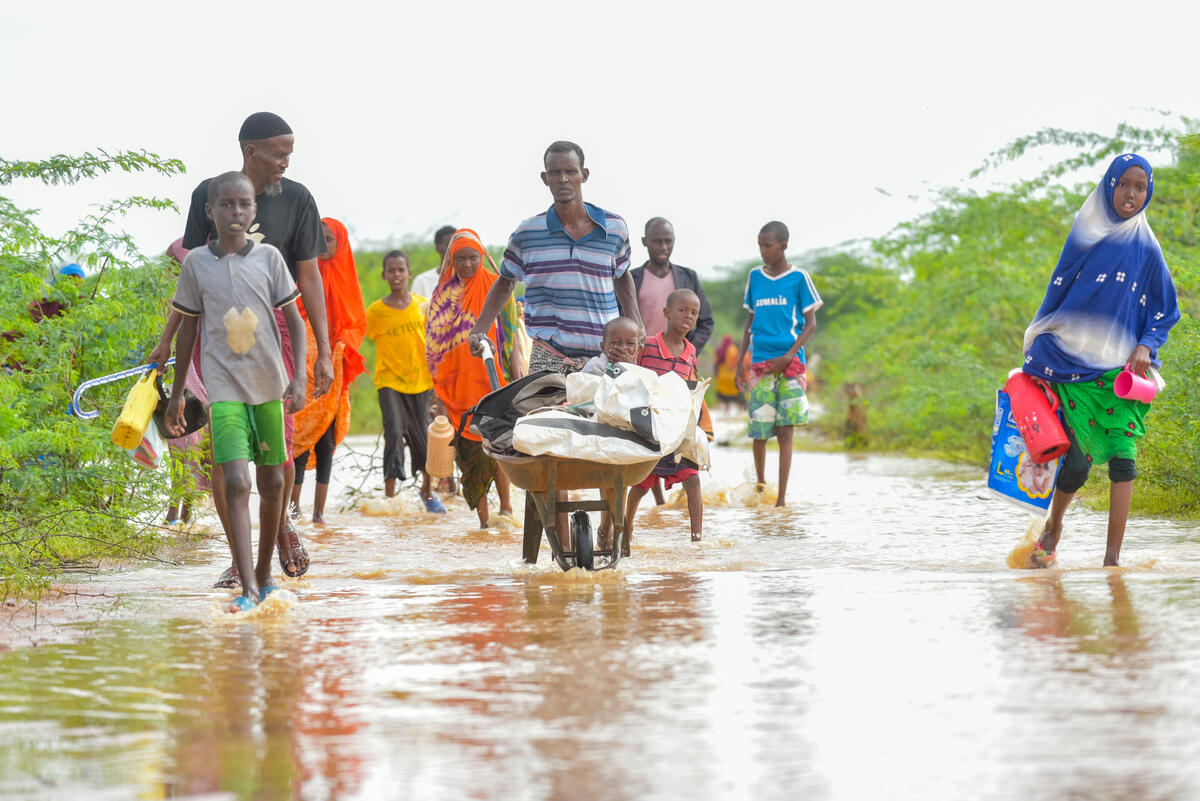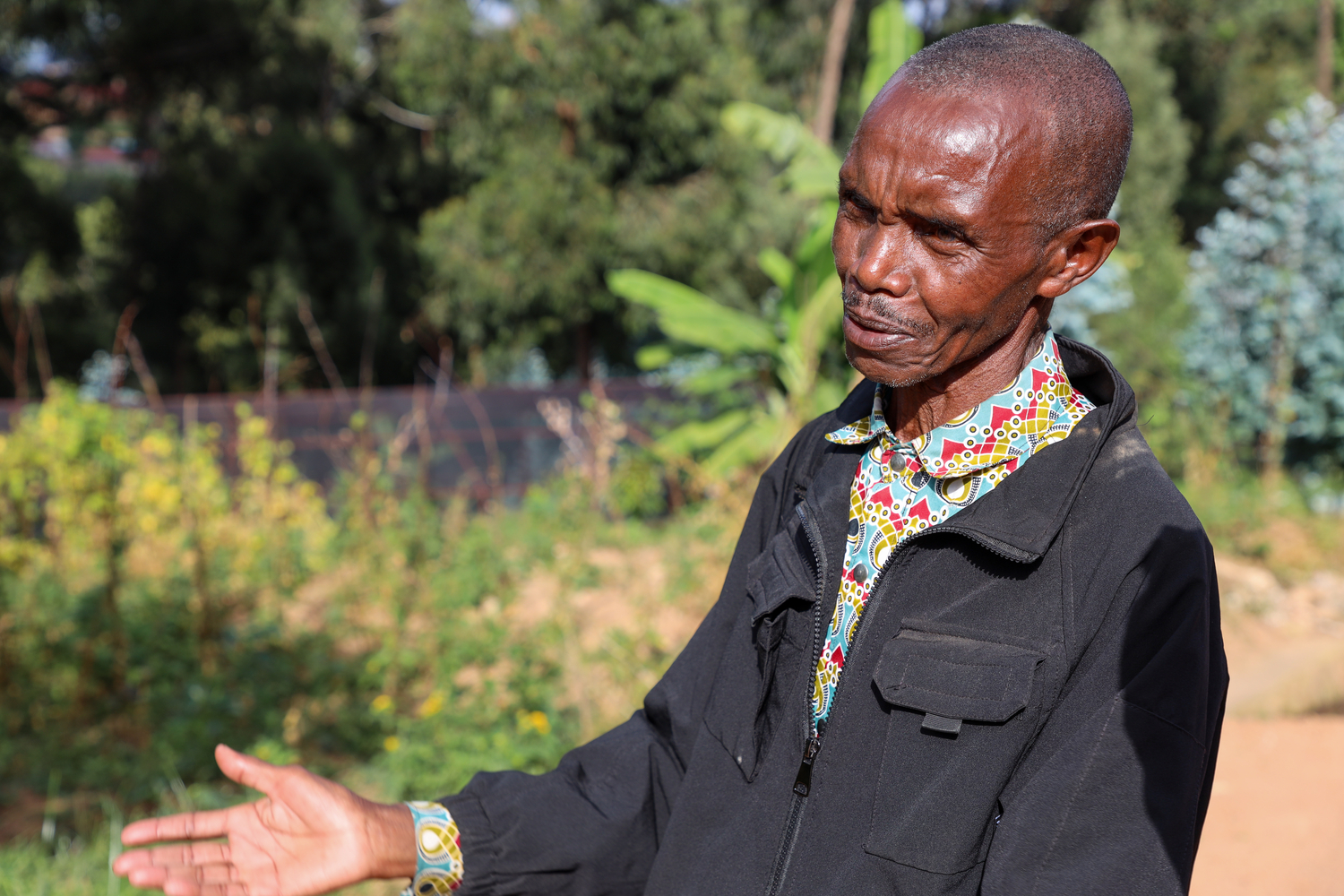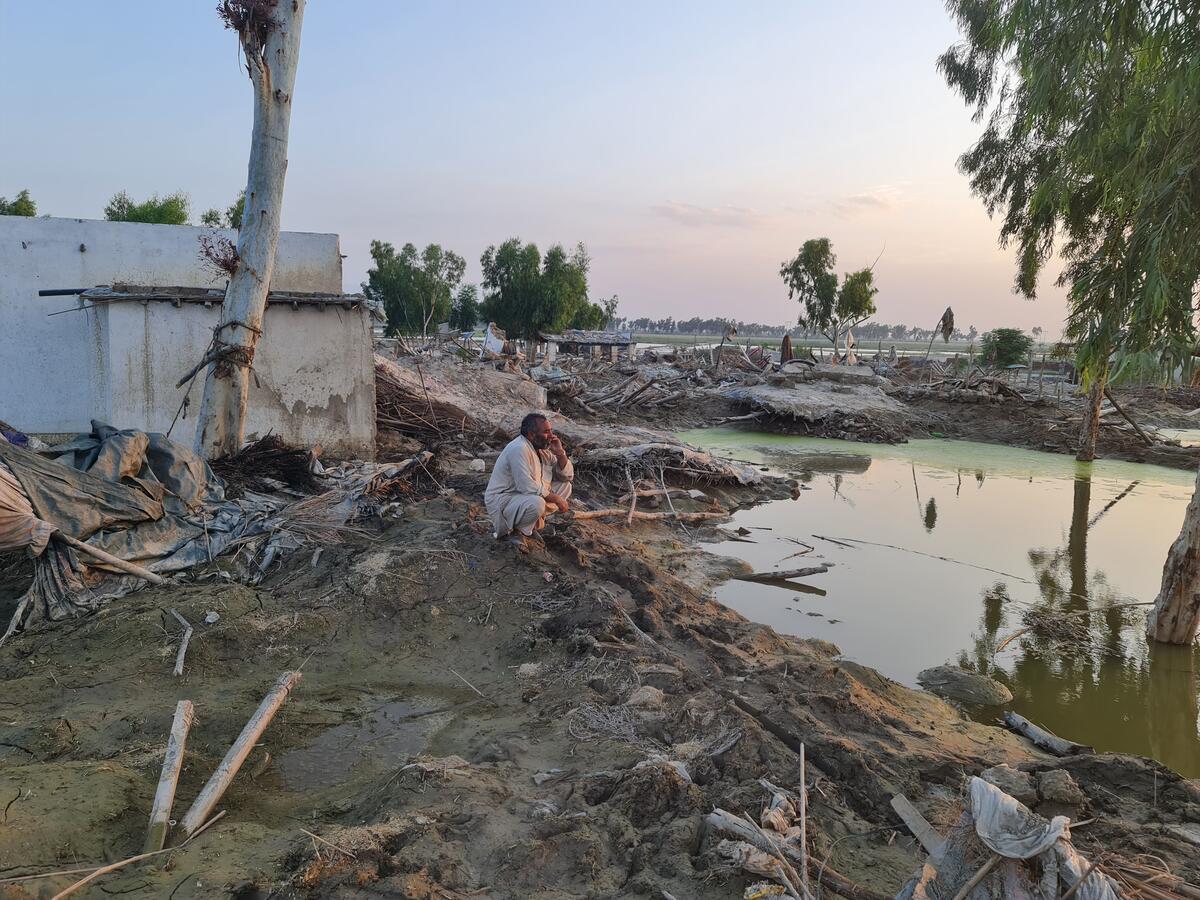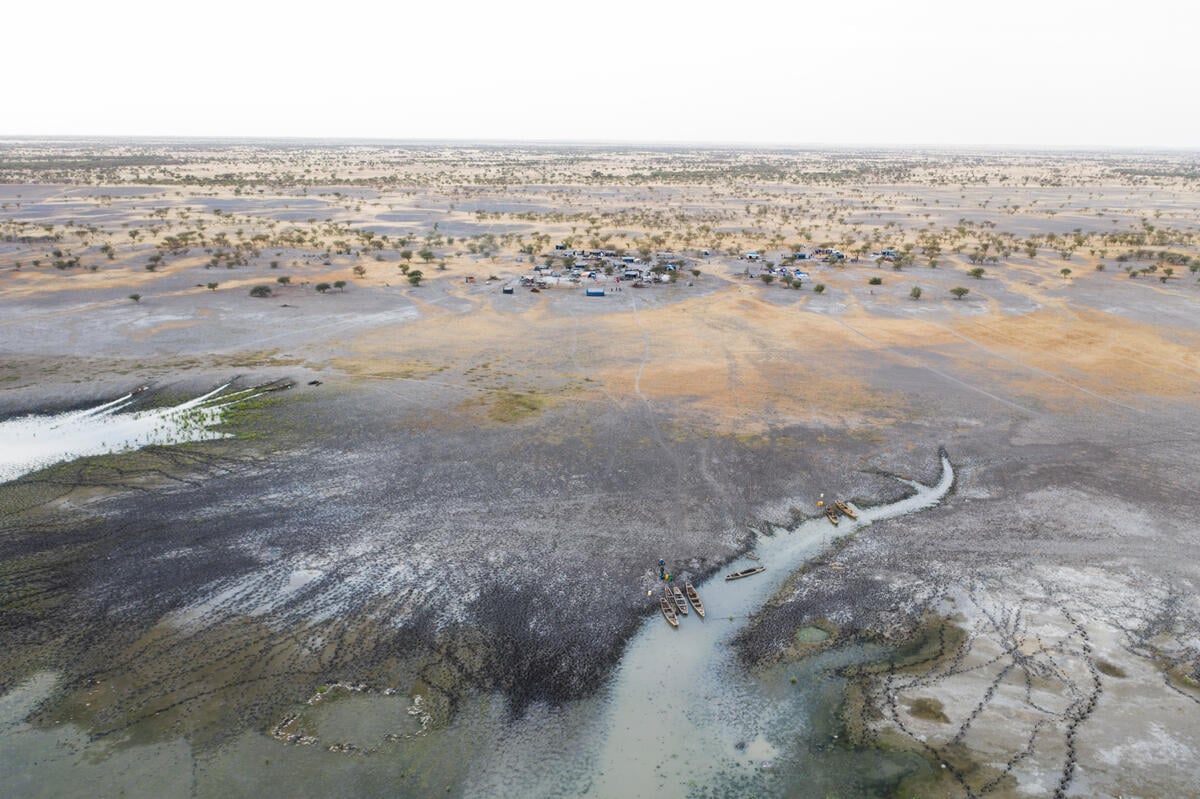UNHCR commits to follow up on the Nansen Initiative on climate and disaster displacement and launches new overview of its work in this area
UNHCR commits to follow up on the Nansen Initiative on climate and disaster displacement and launches new overview of its work in this area
110 countries endorsed the "Agenda for the Protection of Cross-Border Displaced Persons in the Context of Disasters and Climate Change" at the Nansen Initiative Global Consultation that took place on 12 and 13 October 2015 in Geneva. The Agenda identifies the practices necessary to address the possible protection needs of people displaced across borders in the context of disasters and climate change, in a principled and practical way. UNHCR has, from the very beginning, been a staunch supporter of the Nansen Initiative and is committed to continuing to work with relevant partners to maximize support to States.
Among the most important lessons derived from the Nansen Initiative is that States can prevent and prepare for increased displacement in future when the right policies are in place. Stepping up adaptation and disaster risk reduction efforts needs to go hand in hand with mitigation. And the protection dimension must be central in these endeavours.
With the Paris Climate Conference only a few weeks away, UNHCR is renewing its call for states to conclude a meaningful agreement that must take into account the growth of climate-change related migration and displacement and the need to take proactive measures in response.
"If we can draw any lessons from the current refugee situations in Europe and the Middle East, it is to take the forecasting seriously, accept the realities of migration and displacement, and deal with them effectively and as a matter of urgency. Radical action is required of us now to mitigate against the worst effects of climate change. The Paris agreement presents an opportunity to achieve this," said Volker Türk, Assistant High Commissioner for Protection, in his keynote address at the Nansen Initiative Global Consultation in Geneva on Monday.
The new overview UNHCR, the Environment and Climate Change explains the most serious challenges being faced as well as the solutions UNHCR is implementing to tackle climate change, environmental degradation and natural disasters. The report comes at a time when more and more people are being displaced by disasters and climate change.
The majority of the almost 60 million people displaced around the world today are situated in 'climate change hotspots'. Climate change is a megatrend that will compound other megatrends, including food and water insecurity, and competition over resources. The movement of people is intrinsically linked to climate change and climate change could, in combination with other factors, drive even more displacement in future. Enhancing the resilience of people of concern and the communities hosting them is also a concern to UNHCR as a means to avoid secondary displacement.
An average of 26.4 million people per year since 2008 have been displaced from their homes by disasters brought on by natural hazards. This is equivalent to one person being displaced every second and displacement risk is largely driven by the fact that more and more vulnerable people are living in disaster-prone areas.
UNHCR is tackling the displacement problems posed by climate change through a number of initiatives, most notably through its support for the Nansen Initiative. UNHCR has also developed guidance, together with the Brookings Institution and Georgetown University, on planned relocation of populations threatened by disasters and climate change.
Download the overview UNHCR, the Environment and Climate Change
See:Nansen InitiativeLink is external
Further information - In Geneva:
- Andy Needham +41 79 217 3140
- Marine Franck franckm@unhcr.org








